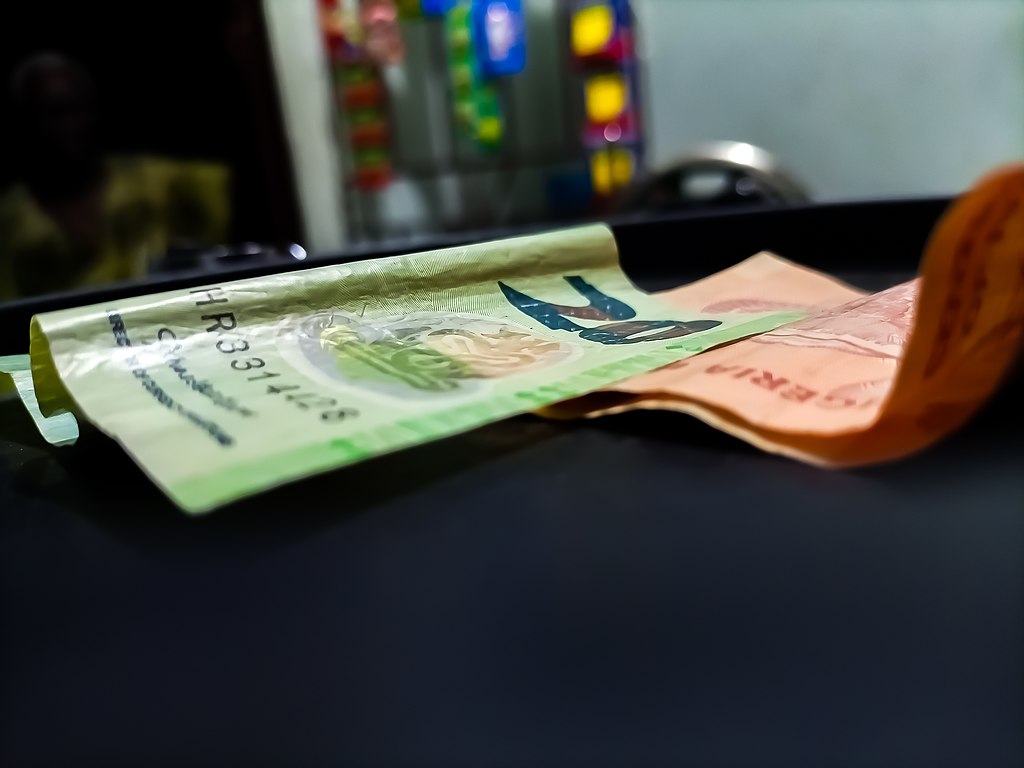Cash politics: the impact of the currency redesign policy on Nigeria’s 2023 General Election
In October, the Governor of the Central Bank of Nigeria announced that the highest denominations of Nigerian currency would be redesigned. MPP student Ayodele Awi assesses the impact this could have on Nigeria's general election given the dominance of ‘cash politics’.

On 26 October 2022, the Governor of the Central Bank of Nigeria (CBN) Mr Godwin Emefiele announced that the highest denominations of the Naira, the Nigerian currency, (N200, N500 and N1000 notes) would be redesigned, giving a deadline of 31 January 2023 for all old notes to be deposited in banks in exchange for new ones. According to the CBN, the new notes would help curb corruption and currency fraud, tackle the growing menace of kidnapping for ransom, lower inflation and address the problem of having too much money in circulation.
There was an immediate backlash to this, with strong opposition from the Minister for Finance, Zainab Shamsuna Ahmed, who claimed that the Ministry had not been consulted. But the CBN Governor remained undeterred and the new notes were launched by President Muhammadu Buhari on 23 November 2022.
Many Nigerians felt the CBN was too quick to implement the policy and criticised the design of the new notes as unappealing. In response, the CBN rolled out campaigns to educate Nigerians on the benefits of the policy, and the Governor defied warnings from the legislative and judicial arms who continued to mount pressure that the policy, even if for good, was coming at the wrong time and questioned the haste in its implementation. By the deadline of 31 January when the old notes would cease to be legal tender, Nigeria would be less than four weeks away from a general election. The toughest resistance to the policy was soon to come, but this time it wouldn’t be coming from the financial and economic experts but from the politicians.
What impact would the currency redesign policy have on the general election in a country where ‘cash politics’ dominates the political landscape?
‘Cash politics’ in the Nigerian context loosely refers to a common practice by political parties of inducing voters, usually by offering cash or other items like food, branded souvenirs and clothing prior to an election to galvanise support, or during an election to buy votes. With the poverty rate growing in Nigeria, it is easy to understand why this strategy has continued to gain popularity despite efforts to curtail it. Cash politics, however, is dependent on access to a consistent supply of cash for political parties to use before and during the election. It didn’t take long for politicians to figure out that the cash redesign policy might impede plans for voters’ inducement before the election or vote buying on election day.
The presidential candidate of one of the leading political parties – the ‘All Progressive Congress (APC)’ party, the current ruling party – publicly criticised the government saying that the CBN policy was targeted at him to scuttle his presidential campaign. Supporters of the party threw their weight behind his remarks and compelled the President, who is a member of the same ruling party, to backtrack on the policy. Suddenly the currency redesign policy became politically salient, drawing the attention of an electorate whose votes the parties all desired.
One of the leading opposition parties, the Peoples' Democratic Party (PDP), claimed that the currency redesign policy was in good faith and would have an equal impact on all candidates contesting the election. The PDP challenged the narrative that the ruling party would implement a policy to disproportionately favour other parties. Some Nigerians supporting the presidential candidate of the Labour Party have thrown their support behind the policy in the hope that it will reduce the chances of vote buying. Eventually, the President announced the extension of the deadline to 10th February 2023 and spared the #200 note, while confirming that the #500 & #1000 notes would be phased out of circulation as planned.
The division among the APC party has contributed to increasing tension in the country. Provocative statements from popular politicians challenging President Buhari's decision have incited violence among the populace. ATMs have seen longer queues and Point-of-Sales (POS) operators have taken advantage of cash scarcity to increase their commissions on transactions from Nigerians who are making frantic efforts to access the new banknotes. The dearth of new notes in circulation has added to the hardship suffered by poor Nigerians who have chosen to trade by barter in order to feed themselves. And there is more hardship to come. Fuel remains scarce in some parts of Nigeria, and expensive where available. Banks have been attacked and ATMs burned down, leading to some banks shutting down their operations. In some cities, protesters were seen besieging the CBN offices in their frustration. In an attempt to dispel protesters, security forces have taken over the streets.
The CBN Governor remains resolute. One wonders, what is the intent of the President in the matter? Having implemented a similar policy in 1984 as a Military Head of State, is his action a sign of his confidence in the positive economic outcomes of the policy? Or should we remember his inaugural speech when he was sworn into the Office of President in 2015 when he said, "I belong to everybody and I belong to nobody"? One thing seems less doubtful, the Buhari administration has supported the democratic ideal of a level-playing field for all candidates in the election regardless of party affiliation – a good sign for Nigeria’s democracy. Perhaps President Buhari’s legacy might be the delivery of a free, fair and credible 2023 election, one in which cash politics was outlawed using a cash redesign policy despite confrontations from unyielding powerful political actors.

